On the Occasion of Shakespeare's 450th Birthday
The remarkable thing about Shakespeare is that he is really very good - in spite of all the people who say he is very good.
(Robert Graves)
First encounter
Scratch a theatre director, and you're likely to find a bit of Shakespeare just below the skin. And so it is with me.
One of of my very earliest theatre experiences was of Shakespeare: Derek Jacobi as Hamlet, with the touring Old Vic Company, directed by Toby Robertson. The production played at Her Majesty's Theatre (now apartments) in Sydney for five nights in December 1979.
I remember little, other than I found it 'superlative'. My diary records this response. I must have just learned the word.
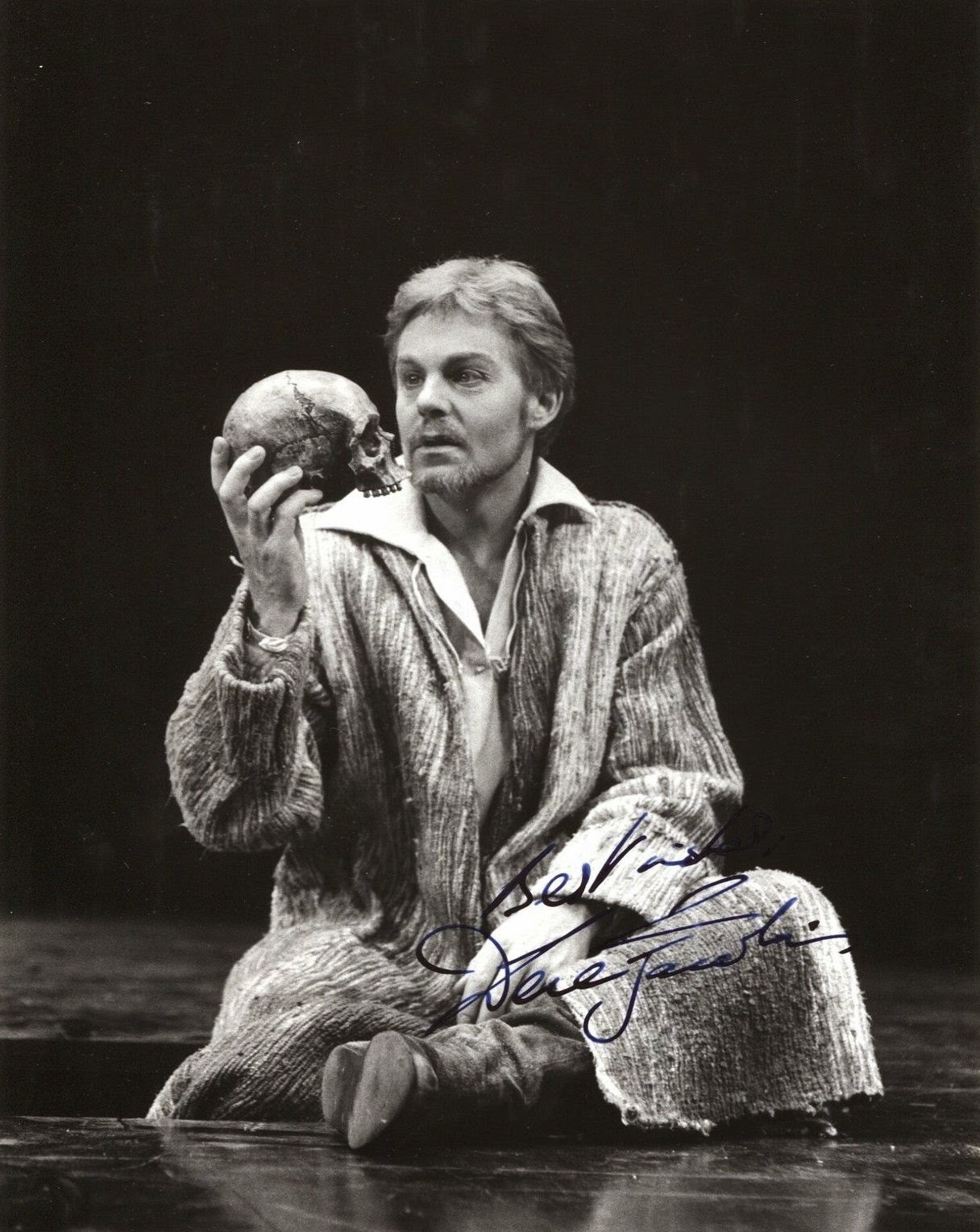 |
| Derek Jacobi as Hamlet, 1979. |
Jacobi was 41 when he played Hamlet in Sydney - old for the role, even by standards of the time. I can't say I was aware of it. But what he lacked in youth was made up for in genius.
School encounters
In my final year at Maitland Marist Brothers high school, the first part of Henry IV was the compulsory text. The year before it was Othello, I think, and it seemed to us that we were being short-changed: instead of a famous tragedy we were lumped with a play no one had heard of. In fact, we got by far the better deal. Othello is relatively dull, stretching at credibility, compared with the glorious life and variety of I Henry IV.
 |
| The Signet Classic edition I devoured |
The brilliant construction of the play, always connected to life, held me in awe. The lived rhythms of Act 2 Scene 4, in which Hal and Falstaff move through gut-splitting comedy before landing in heart-tearing pathos is, I think, one of Shakespeare's most astounding sequences. I know nothing like it in English drama.
Hamlet, as is its habit, returned. While at school, I decided to mount a production. Perhaps Jacobi's ghost was lingering. Naturally, I would play Hamlet - and design the show, look after the lights and realise the fight choreography. Like Falstaff gathering buddies, or Hal gathering food for powder, I enlisted much of the cricket team to play the other roles. We rehearsed after school for months. I borrowed foils and costumes from a local amateur theatre company, and I'm sure I used sheets for the ghost scenes. There might have been ultraviolet lighting. It was a much truncated text, probably no more than 90 minutes long, but since I was playing Hamlet the show retained all the soliloquies. We performed the play for the rest of our class and the year below us, and then threw on a couple of night shows for parents.
It was about this time that I discovered that John Bell had attended the school. A dusty trophy cabinet revealed that John was Dux in 1956.
Encounters on the heath
When I was 19, I directed a full Macbeth for the amateur theatre company in Newcastle that had furnished my short Hamlet. It was a company more tuned to musicals - I had been in several - but they were happy to give this teenager rope. Naturally, I also designed and took the role of Malcolm.
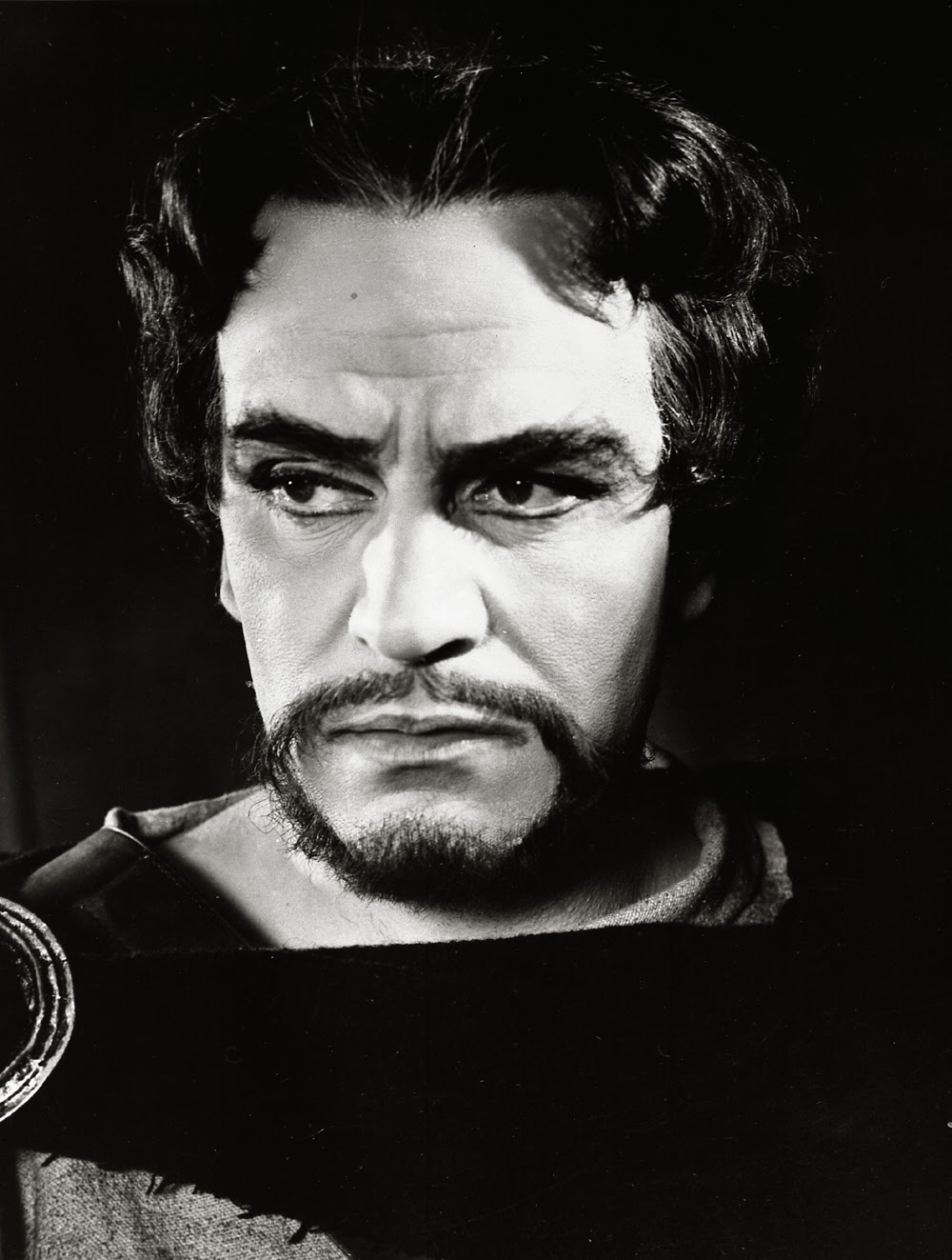 |
| Laurence Olivier as Macbeth, 1955 |
I managed a few interesting ideas. Fleance appeared at the end of the story - as he had done on many other stages before and since - as a reminder that the weird sisters' prophecies remain unfulfilled. I played Malcolm as a Machiavellian ruler, a perhaps unusual approach.
In Act 4 Scene 2, an unnamed messenger abruptly arrives to warn Lady Macduff:
Bless you, fair dame! I am not to you known,I gave this speech to Lady Macbeth, as an expression of guilt on the path to madness. It seemed to add something.
Though in your state of honour I am perfect.
I doubt some danger does approach you nearly:
If you will take a homely man's advice,
Be not found here; hence, with your little ones.
To fright you thus, methinks, I am too savage;
To do worse to you were fell cruelty,
Which is too nigh your person. Heaven preserve you!
I dare abide no longer.
A few years later, on my first trip to Stratford-upon-Avon, I encountered a display that included Olivier's Macbeth costume. I was struck by the scale: Olivier was much shorter than I had expected (he was 5'10" or 178 cm). Still, being face-to-face with such formidable yet familiar theatre history became too much. I gently tore off a small piece of leather, no bigger than half a thumbnail, and pocketed it. I still have it.
I have an uneasy relationship with this play. I've encountered it maybe a dozen times in theatres big and small and I can't say I've ever seen it 'work'. Perhaps in lacking a subplot it lacks the human variety of the other tragedies. Perhaps the unrelenting poetry, unleavened by much prose, burdens the ear. Perhaps the supernatural gets silly. It's a play that seems to attract missteps. The most recent Macbeth I've seen - the 2014 Queensland Theatre Company production directed by Michael Attenborough - certainly felt like that. It was a surprising cultural throwback - the most slowly spoken Shakespeare I've ever encountered, mostly with English accents, and presented in a 'stand and deliver' style that I thought we'd left behind. Perhaps it was not surprising that Macbeth should be the vehicle.
While Macbeth has an uneasy relationship with the theatre, it's no doubt a great dramatic poem. The patterning of imagery is mature and rich. Perhaps that's why Trevor Nunn's 1976 RSC production, with Ian McKellen and Judi Dench, performed in-the-round in the RSC's 150-seat Other Place theatre and then recorded on video in 1978, remains the best version I've seen. It was the play as lived poem, delivered with intimate and human detail.
Encounters in the open
At university, I immersed myself in studies of Renaissance court culture and English theatre of the period. A Masters was began, though never contemplated for completion. My thesis subject was the influence of those game-changing Nimrod productions of Shakespeare in Sydney in the 1970s, ventures that aimed to set us free from the English manner and accent and to invent a Shakespeare for our time and place. It was intoxicating to dig into the Nimrod archives at the Dennis Wolanski library then housed in the Sydney Opera House. A favourite find was the the prompt copy of the 1973 Hamlet, with Richard Wherrett directing former Maitland boy John Bell at that iconic theatre on Nimrod St Kings Cross, the very theatre I would run 30 years later.
Research gave way to a production of Romeo and Juliet. The University of Newcastle has a space called the Drama Studio, which was an open space inspired by the New Fortune Theatre at the University of Western Australia. The New Fortune was based on the layout of the original Fortune Playhouse (London, c.1600) and designed in consultation with Sir Tyrone Guthrie. Like the New Fortune, the Drama Studio was an inviting space in which to grapple with an Elizabethan play.
I had a lot of fun with Romeo and Juliet. I had recently seen the original production of Jim Cartwright's scintillating Road at London's Royal Court. The seats had been pulled out of the theatre to allow for a promenade production, with the audience mostly free to wander in and out of the chaotic action. It made a deep and lasting impression. Romeo and Juliet was also a promenade production. It also took an eclectic approach to the design which saw cans of VB beer mix it with Elizabethan trimmings. The street scenes were rough and dangerous - my own performance as Mercutio saw me leap, Olivier-like, every night from the second balcony - and the big party scene was often difficult to control. On many occasions, the audience threatened to take over. To me, this was all very Shakespearean in spirit: multifarious, boisterous, sweaty and inclusive.
More encounters with Hamlet, and with Marlovian mayhem.
It would be a while before I returned to Shakespeare. My career saw me work mostly with living writers. But when I took the reins at the Australian Theatre for Young People, I could not resist Hamlet. After all, it was a story about a university student having trouble with his parents, mates and girlfriend. I thought it would play.
 |
| Heath Carr (Hamlet) and Anthony Gee (Laertes), ATYP, 2002. |
It's worth mentioning that I arrived at this Hamlet following a cyclonic time with Christopher Marlowe the previous year. Marlowe was born in the same year as Shakespeare. He was the most famous playwright of his time, an atheist, homosexual, very likely a spy for Queen Elizabeth’s secret service, and killed in a pub fight when a knife was plunged into his skull above his right eye in what was probably a political assassination. He was dead at 29. There was something about his spirit that made me think he'd be fun fodder for a theatre for young people. My interest had history: at Sydney Theatre Company in 1998 I'd spent two weeks with a terrific group of leading actors exploring the stage worthiness of Marlowe's Edward II, an investigation that was sharpened when I saw Claus Peymann's thrilling production for the Burgtheater in Vienna a little later on.
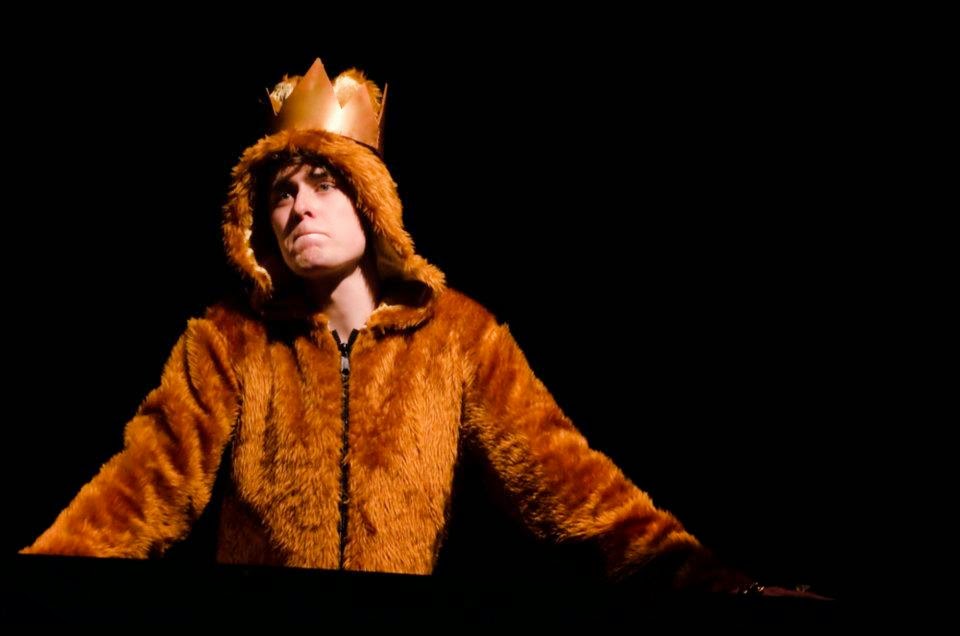 |
| Alec Snow as Edward II, 2012. |
I returned to Edward II in 2012 when I directed the play for graduating acting students at Brisbane's QUT. It's good to return. I had learned much in the intervening decade and was ruthless with the text. I rearranged much of it, particularly in the second half, and even wrote some scenes in blank verse to patch over the joins. I don't think anyone noticed.
La Boite Encounters
When I arrived at La Boite Theatre Company in late 2008, I knew that I wanted to return to Shakespeare. This in-the-round space was perfect for a Shakespearean splash. What better way to begin a tenure, I thought, than to kick of with Hamlet? Get the big stuff out of the way...
At Griffin Theatre Company, I had directed Toby Schmitz in the new plays that made up Louis Nowra's The Boyce Trilogy: The Woman with Dog's Eyes (2004), The Marvellous Boy (2005) and The Emperor of Sydney (2006). It was a very satisfying enterprise and Toby and I had built a close rapport. It seemed to me that Toby was born to play Hamlet. I knew that he had been reading Shakespeare since he was a boy. I knew that he could be both student and Prince.
 |
| Toby Schmitz as Hamlet, La Boite, 2010 |
 |
| Thomas Carney and Thomas Larkin, As You like It, 2012 |
Future Encounters
Next month I begin rehearsals for a production of Much Ado About Nothing at NIDA. I expect I'll have a very enjoyable time, not only because of the play, but because I'll be surrounded by young actors full of hunger and fresh insight.
Directly after that I begin my new life as Artistic Director of Brisbane Festival. The life of a international arts festival director is, I am reliably informed, one that enables encounters with the unexpected, which means that I expect to encounter Shakespeare in guises that are not now part of my imagination. What a fabulous thought that is.
Happy birthday, William, and thanks for being there from the start.
Shakespeare is a drunken savage with some imagination whose plays please only in London and Canada.
Voltaire (1694 - 1778)
Voltaire (1694 - 1778)

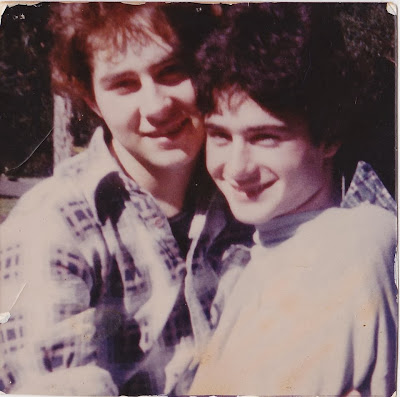
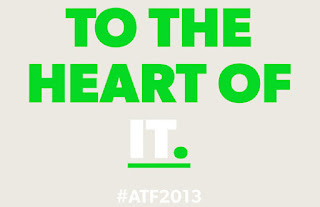
Comments
Post a Comment